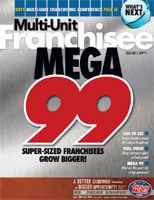
In 2008 we dodged an international financial meltdown. In 2009 we saw the technical end of the second-longest-running recession in U.S. history. In 2010 we are wrapping up the first year of the recovery in a less-than-robust fashion. Let's look ahead to 2011 and what is in store for franchising and, in particular, access to capital.
Darrell Johnson
Tom Kazbour doesn't believe the secret to success lies in studying the ABCs of business. He believes new franchisees can whiz on past most of the alphabet and focus on the letter "V."
Debbie Selinsky
Our next financial concept? OPM (other people's money). As a former commercial banker, I've had the opportunity to see both sides of the "debt/leverage" issue. When you go to a bank for a business loan, your banker (whether they tell you or not) will quickly compute your debt-to-equity ratio. As bankers, we viewed debt as an equivalent of risk: the higher your ratio, the more debt you have in proportion to equity. Therefore, the higher your financial risk. Let me explain why this is so. It all goes back to the financial basics: Assets = Liabilities + Net Worth.
Steve LeFever
The goal of customer experience management is to move customers from satisfied to loyal and, ultimately, to be advocates for the brand.
Jack Mackey
One evening in 1982, Iris Cohn's husband, Dick, came home and told the family he wanted to open a Taco Bell restaurant in the Chicago area. So the couple took their daughter, Jennifer, to one of the restaurants, where they proceeded to order one of every item on the menu. "We were hooked," she recalls. Putting everything on the line, the Cohns became the first Taco Bell franchisees in the Chicago metro area, growing steadily over the years to become one of the brand's largest franchisees.
Debbie Selinsky
Subodh Patel got his start in franchising during the great Texas downturn of the 1980s. By the late 1980s, the savings-and-loan debacle had spawned the federal Resolution Trust Corporation, which in turn became an overnight bazaar for cut-rate, distressed properties that had to be sold fast.
John Carroll
Jason Mann learned early that a career in advertising sales could get you just so far in life. And he wanted to go much, much further. So in 1999, at the age of 30, Mann stepped out of his sales role and joined forces with his father to enter the franchising business.
John Carroll
Being a part of YouTube is no longer something franchise businesses can control. Chances are, you're there, whether you created the content or not.
Lisa Wehr
Refugees from corporate America seeking capital to open a franchise business are tapping into their retirement plans to fund their fledgling businesses. So are multi-unit franchisees seeking to expand.
Eddy Goldberg
In 1980, Bob Chase was in his early 20s, with a small family and not much money. He was barely able to start his first franchise, a Dry-Chem carpet cleaning operation, from a then-fledgling franchisor. But Chase wasn't the kind of young man to let a few little things like that stop him from building his own business from the ground up.
John Carroll
On the surface, franchise corporate executive appears to enjoy a comfortable, prestigious, and satisfying life. They often work in or head up a department brimming with resources and personnel, and the corporate perks aren't bad either. It's a life that can be seen in stark contrast to the often hardscrabble existence of the multi-unit franchisee who has borrowed money to open, invests sweat equity, and works long hours just to keep the business running and the cash flowing. Yet, despite this perceived contrast, some franchise executives chuck the corporate "good life" and set out into the franchisee frontier with their own set of hopes and dreams.
Kerry Pipes
Family and entrepreneur-run businesses face many unique and complex challenges, including succession planning. Generally, family businesses are more than just a place of work; there is emotional as well as financial capital tied up in the business, and passing on the family legacy can be stressful and fraught with difficulty.
Dean Zuccarello
When Indianapolis native Greg Willman and his friend Phil Salsbery talked years ago about forming a small investment company or owning and operating franchise concepts, they consciously omitted the restaurants category. "Neither of us knew anything about the food industry or had any experience in it," recalls Willman, who had worked in marketing and product development at large pharmaceutical, chemical, and medical device corporations.
Debbie Selinsky
On many occasions during the past year, I've seen and heard the past 10 years dubbed as "The Lost Decade." From a stock market perspective--with prices essentially flat between 2000 and 2010--it's not hard to understand why. Upon writing this article, the annualized return on the S&P 500 over the past 10 years was -0.68 percent, versus the average return of 6.28 percent since 1929 (according to FactSet Data Systems). Interestingly, over a similar time frame, aggregate corporate profits have doubled while total household net worth is about 50 percent higher.
Carol Clark











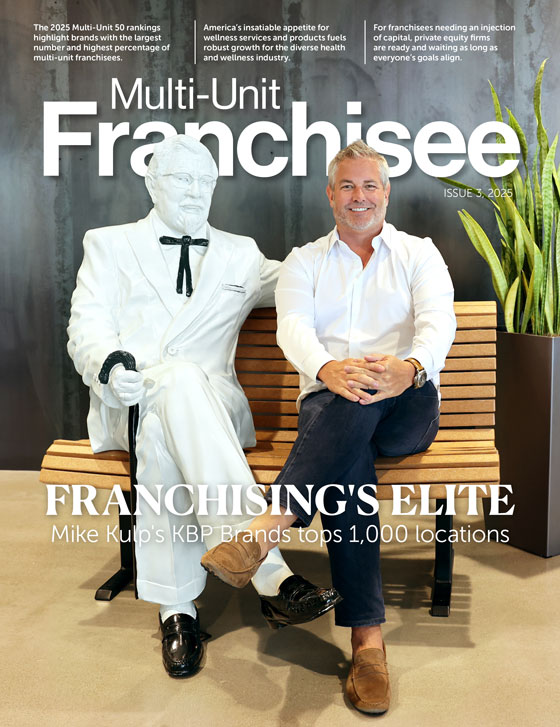
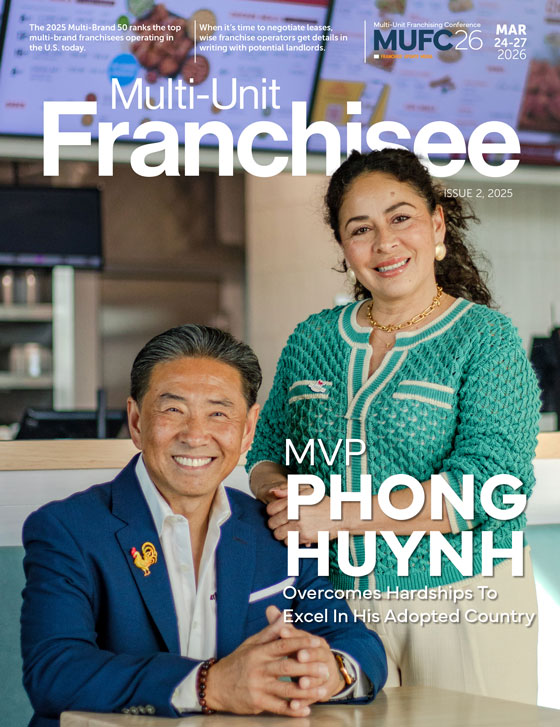
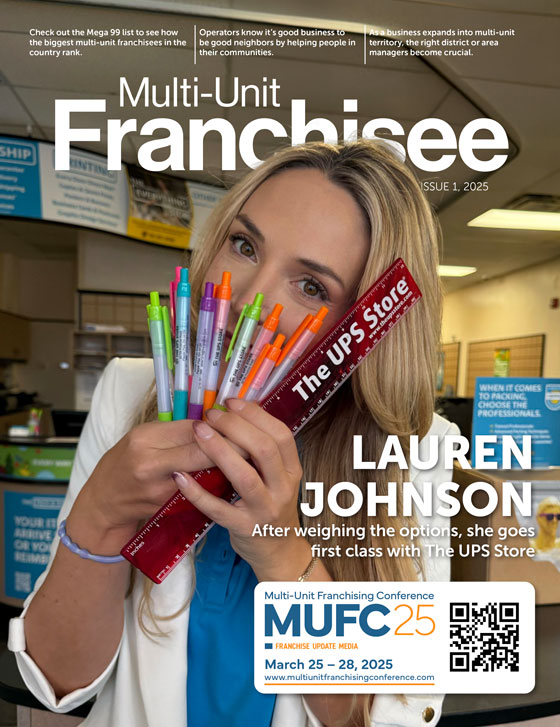

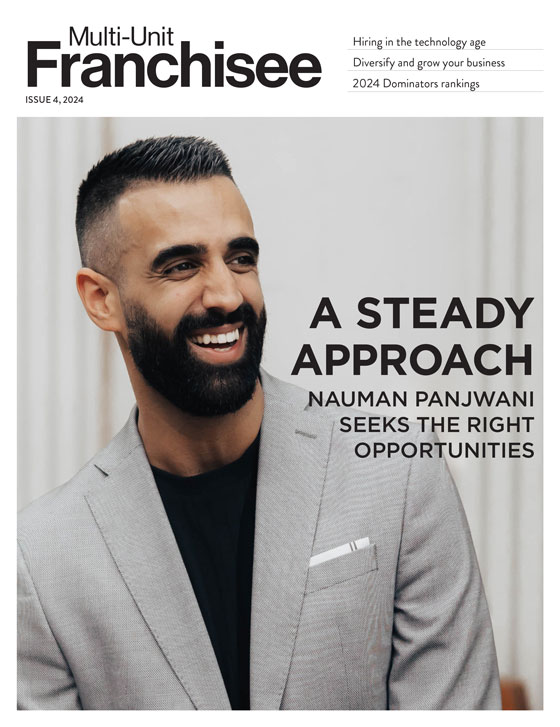

 The multi-unit franchise opportunities listed above are not related to or endorsed by Multi-Unit Franchisee or Franchise Update Media Group. We are not engaged in, supporting, or endorsing any specific franchise, business opportunity, company or individual. No statement in this site is to be construed as a recommendation. We encourage prospective franchise buyers to perform extensive due diligence when considering a franchise opportunity.
The multi-unit franchise opportunities listed above are not related to or endorsed by Multi-Unit Franchisee or Franchise Update Media Group. We are not engaged in, supporting, or endorsing any specific franchise, business opportunity, company or individual. No statement in this site is to be construed as a recommendation. We encourage prospective franchise buyers to perform extensive due diligence when considering a franchise opportunity.